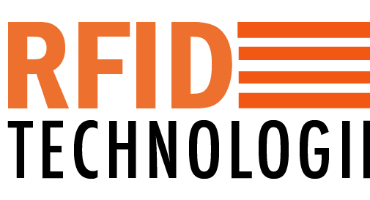Here's how RFID UHF technology is transforming the pharmaceutical sector:
Product Authentication: RFID UHF tags enable unique identification and authentication of pharmaceutical products throughout the supply chain. Each product can be tagged with a unique RFID identifier that can be securely encoded and verified. This helps in combating counterfeit drugs and ensuring the authenticity of pharmaceutical products.
Anti-Counterfeiting Measures: Counterfeit drugs pose a significant threat to patient safety and the reputation of pharmaceutical companies. RFID UHF technology provides an effective solution to combat counterfeiting. By integrating RFID tags into medication packaging, manufacturers, distributors, and pharmacies can verify the authenticity of products at various checkpoints in the supply chain. This helps in identifying and preventing the distribution of counterfeit drugs.
Supply Chain Visibility: RFID UHF technology enables real-time tracking and monitoring of medications throughout the supply chain. From manufacturing to distribution and dispensing, RFID tags can provide visibility into the location, movement, and status of pharmaceutical products. This improves supply chain efficiency, reduces delays, and enables better inventory management.
Product Recall Management: In the event of a product recall, RFID UHF technology facilitates quick and accurate identification of affected products. RFID readers can scan the tags to determine the specific batch or lot number, expediting the recall process and reducing the risk of incorrect identification or retrieval.
Tamper Detection: RFID UHF tags can be designed to include tamper-evident features. If the packaging is tampered with or opened, the RFID tag can send an alert, indicating a potential breach. This helps in detecting unauthorized access or tampering, ensuring product integrity, and protecting patient safety.
Expired Medication Management: RFID UHF technology assists in managing medication expiry dates effectively. By tagging medications with RFID tags that include expiration information, organizations can automate the tracking and monitoring of expiration dates. This ensures that expired medications are identified and removed from circulation, reducing the risk of administering ineffective or harmful drugs to patients.
Improved Patient Safety: RFID UHF technology plays a crucial role in enhancing patient safety. Accurate identification and tracking of medications using RFID tags help ensure that patients receive the correct medications at the right dosage. This reduces the risk of medication errors, improves patient outcomes, and enhances overall safety.
RFID UHF technology in the pharmaceutical industry, organizations can strengthen product authentication, combat counterfeiting, enhance supply chain visibility, and improve patient safety. It enables better control over the pharmaceutical supply chain, safeguards public health, and fosters trust in the industry.
By combining with RFID UHF Readers, both Mobile RFID Handheld Readers and Fixed-Mount UHF RFID Readers, and RFID Antennas, and UHF RFID sensor label tags, organizations can achieve global visibility of their assets, products, or objects in real-time. This integration allows for efficient tracking, event detection, data analysis, and actionable insights, leading to improved operational efficiency, better decision-making, and enhanced supply chain management.
UHF RFID tags and label - both hard and soft UHF RFID Label Tags can be attached to items or packaging, allowing for real-time tracking of inventory. This enables businesses to automate stocktaking, reduce manual errors, streamline replenishment processes, and improve overall inventory accuracy. Real-time tracking of inventory doing automate stocktaking using UHF RFID Readers - both Fixed-mounted UHF RFID Readers as well as Portable Mobile UHF RFID Readers

